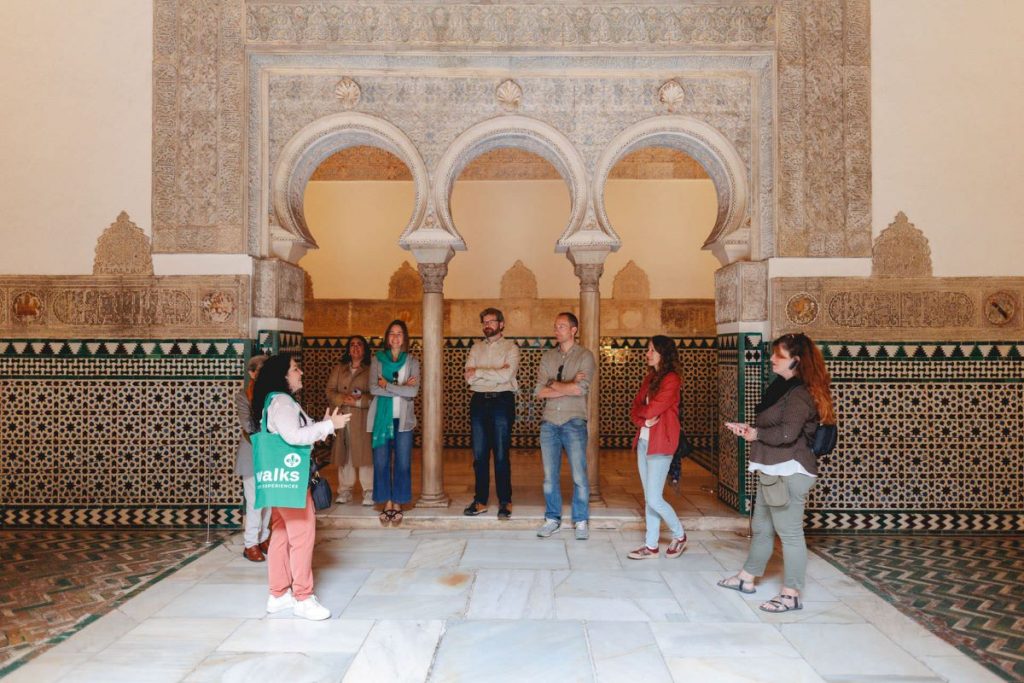When it comes to history, few European cities rival that of Seville.
Known for its rich and layered past dating back more than two thousand years, the Andalusian capital has seen a variety of cultures and civilisations, who’ve all added to the city’s rich tapestry. One such example is the Alcazar Seville.
Read along for everything you need to know about this iconic attraction, plus how to see it without any crowds (a truly epic experience).
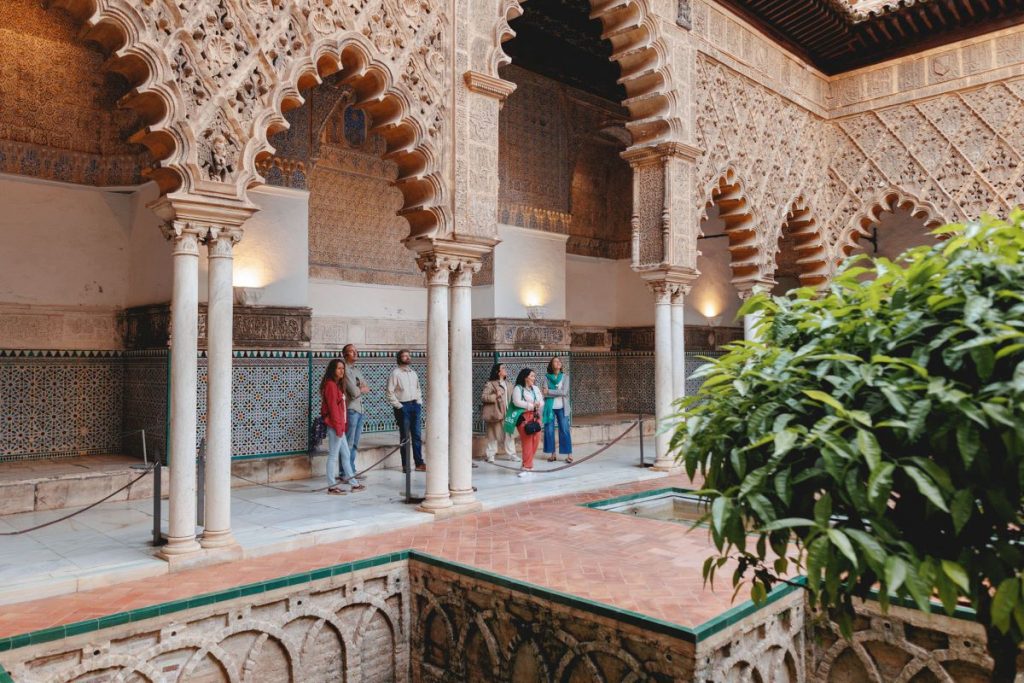
Brief history
With a name originating from the Arabic word for both castle and palace, Seville’s Royal Alcazar sits today on what was once an Islamic-era fortress. The palace we can visit today, built for Peter of Castile following the city’s reconquering by the Christians in the 12th century, has had many different faces over the centuries. Despite popular belief due to the amount of Arabic influence in both its design, layout and decoration, very little of its initial design under the Abbadid dynasty remains.
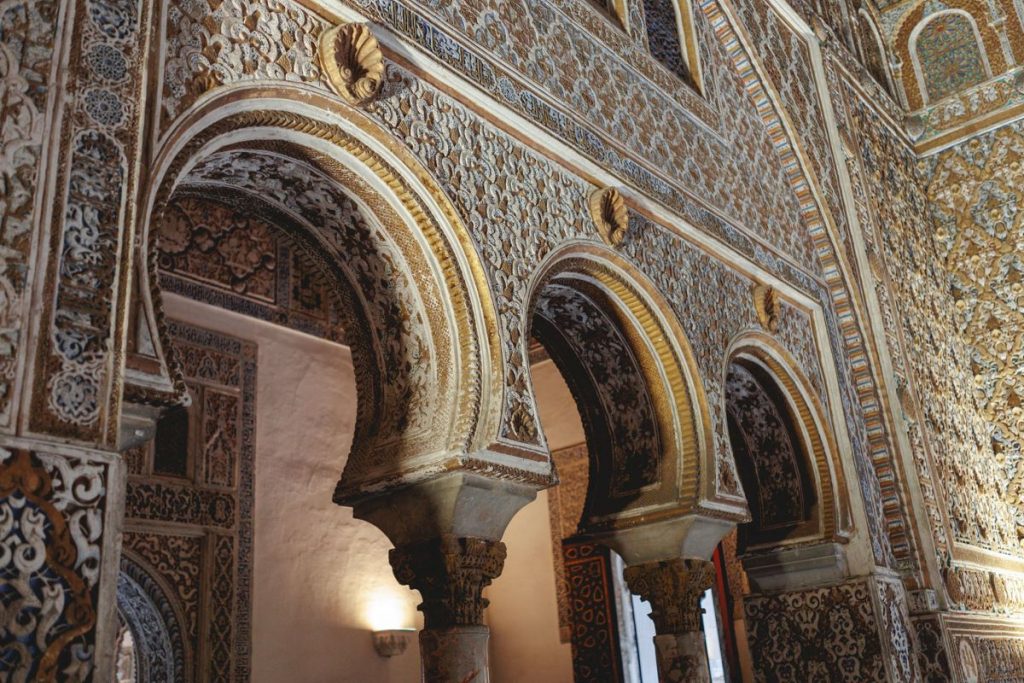
Visiting the Alcazar
Situated near the Cathedral and the General Archive of the Indies, there is a reason why the Alcazar and its fortified stone walls make any curious traveller interested to find out what’s beyond them. Whereas the Cathedral strikes you with its artwork and impressive displays of art, gold and silverwork, the Alcazar’s beauty lies in its Mudéjar architecture, a blend of Arabic, Gothic, and Romanesque features – something which the Christians conceived in the years following the muslim conquest of 1492.
Fun Fact: Even though the Alcazar is now owned by the Seville town hall, its upper residences remain to this day an official residence of the Spanish Royal Family.
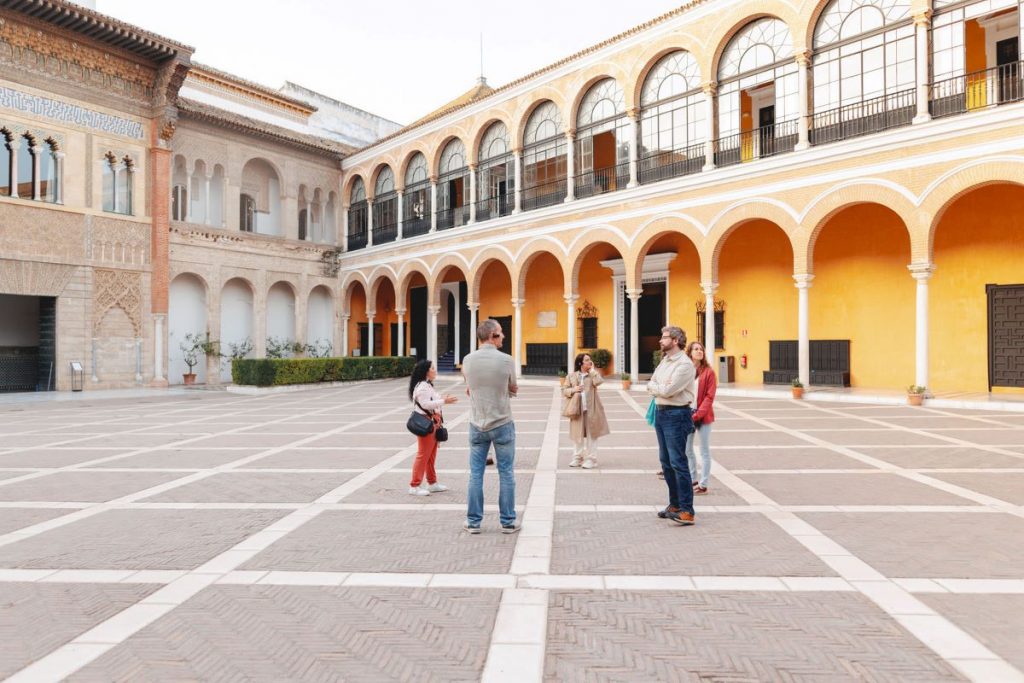
Highlights of the Alcazar Seville
Of all of the site’s incredible features, few do well to top the palace’s exquisite tile decoration. With many rooms adorned in majolica and arista, a style developed in the region at the time of Seville’s influence as a major trade centre, the Alcazar is a ceramic-lovers dream. Pay close attention to each pattern; you might be able to spot how the master tilers of the day signed off on their work.
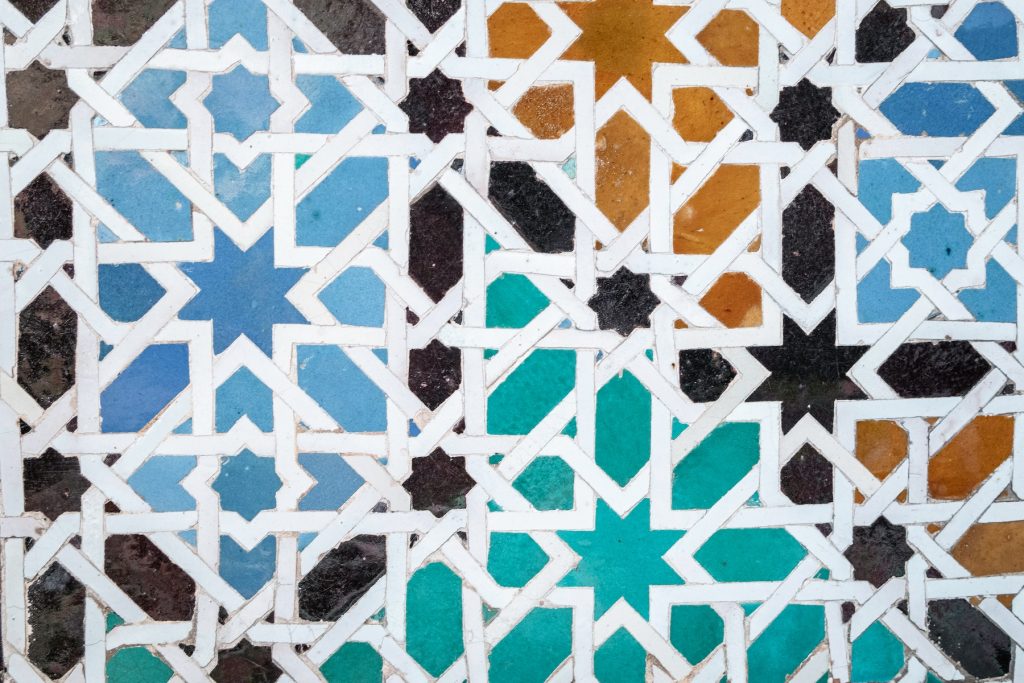
No palatial residence is complete without a grand patio, and the Patio de las Doncellas is no exception. With a decorative water feature flanked with citrus trees, it’s easy to see why this particular spot stunned location scouts looking for a place to capture the fictional Dornish capital of Sunspear prior to the production of HBO’s Game of Thrones.
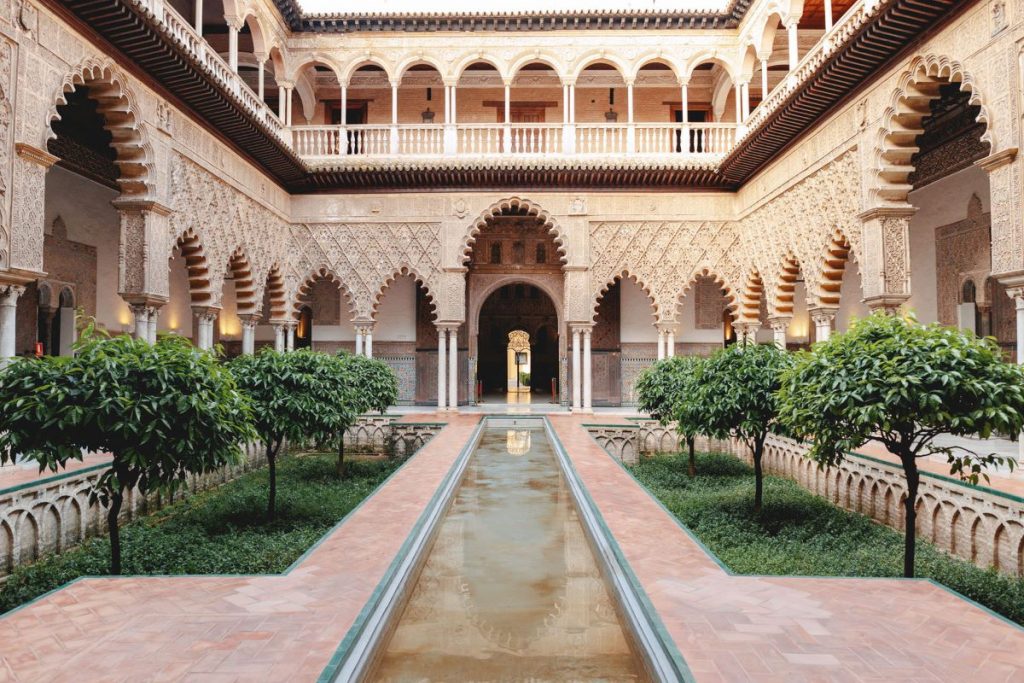
Just beyond the Patio lies the Ambassador’s hall, the ancient throne room which Peter the Cruel made the centrepiece of his Royal Palace. Lavishly decorated in both marble and painted tile, the jewel in this room’s crown is its spectacular ceiling, which no doubt leaves many visitors wishing they had a better camera. With these halls and rooms playing host to some key moments in European history (Christopher Columbus petitioning King Ferdinand and Queen Isabella to sail to the new world being one of them), let this breathtaking example of opulent royal living transport you back in time.
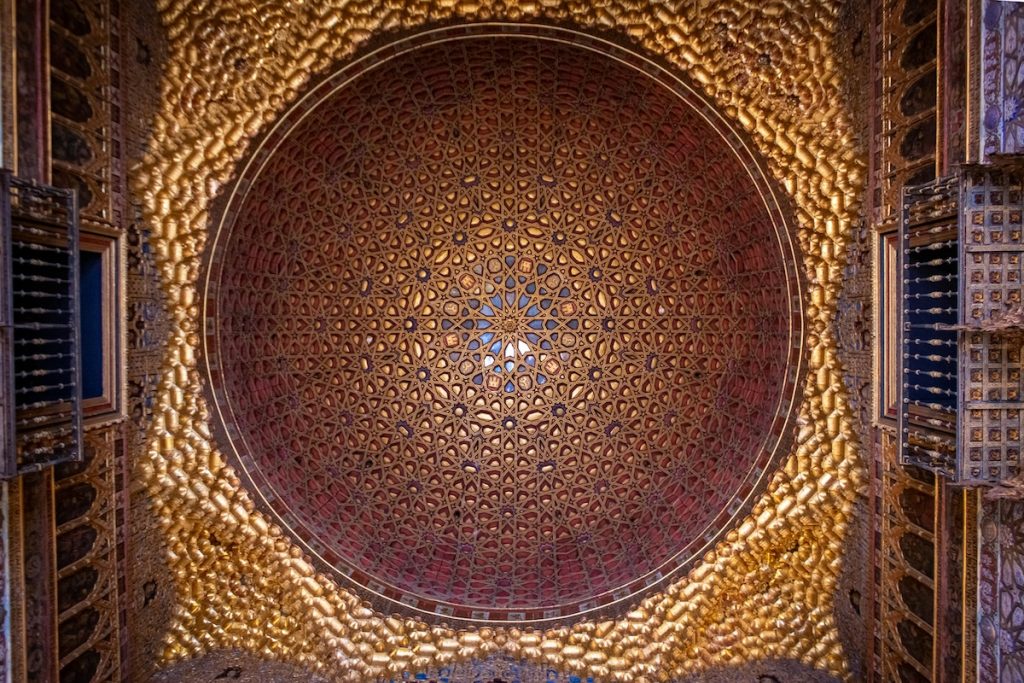
Think Game of Thrones was the only drama filmed here? Think again! Adjacent to the Patio de las Doncellas, head upstairs to the Gothic Palace, which featured in 1962 epic Lawrence of Arabia. Some of the highlights here include its grand windows which open onto the garden, tilework depicting Monarchs of old, and of course the stunning collection of tapestries each depicting key moments of Spain’s colonial past.
But that’s not all.
After appreciating all there is to see within the palace walls, head outside to Alcazar’s unmistakable garden. Despite having undergone many changes throughout the centuries thanks to each Monarch renovating the space until it could be expanded no further, the garden’s intricate irrigation channels, ponds and pools remain a true example of how royalty once lived.
With plenty of opportunities to sit and enjoy the exotic species of trees, flowers, and plants, its viewing galleries, and of course the resident peacocks, allot some time to enjoy these once private gardens now open to the public. If lucky, you might also time this part of the visit to appreciate the hourly sounds of the garden’s organ fountain, one of only four preserved hydraulic organs in the world today!
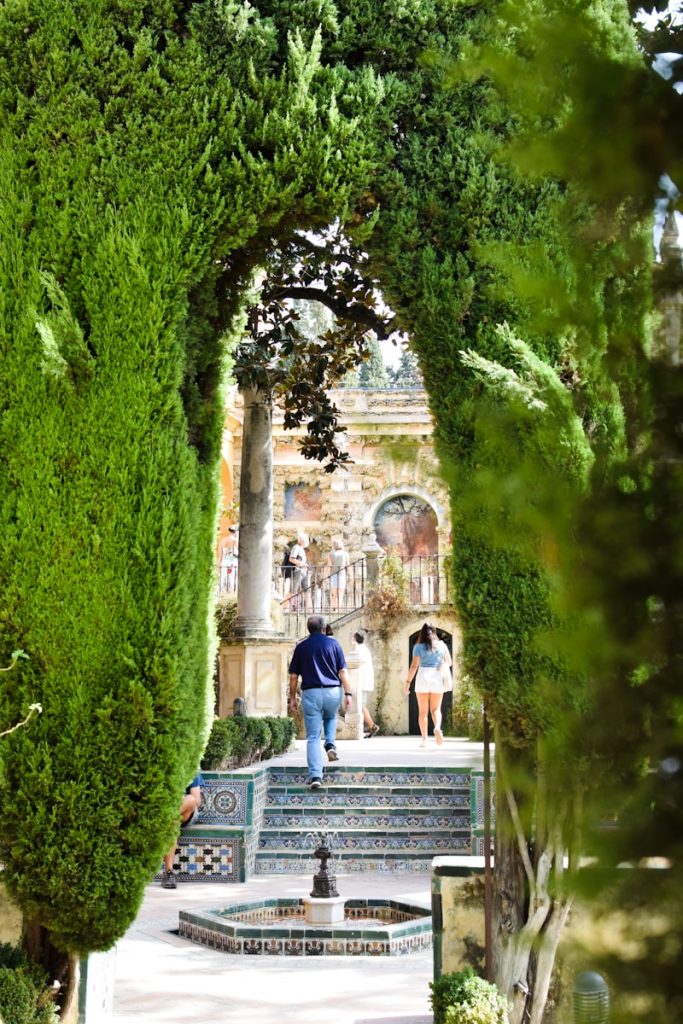
Summer spectacular: Alcazar Seville’s Fun-Filled Nights
Depending on the time of year you choose to visit Seville, the Alcazar isn’t just for visiting as part of a tour group. It’s known to host a variety of events, historical exhibitions, and concerts throughout the year.
A favorite of these is Noches en los Jardines del Real Alcázar (Nights in the Alcazar), a series of summer concerts featuring both local and national talent over 75 special nights throughout the summer months normally lasting from June to September. With summer temperatures often inhibiting you from doing much during the afternoon, these concerts can be the perfect solution. Tickets and information can be found on their official website during the summer months.
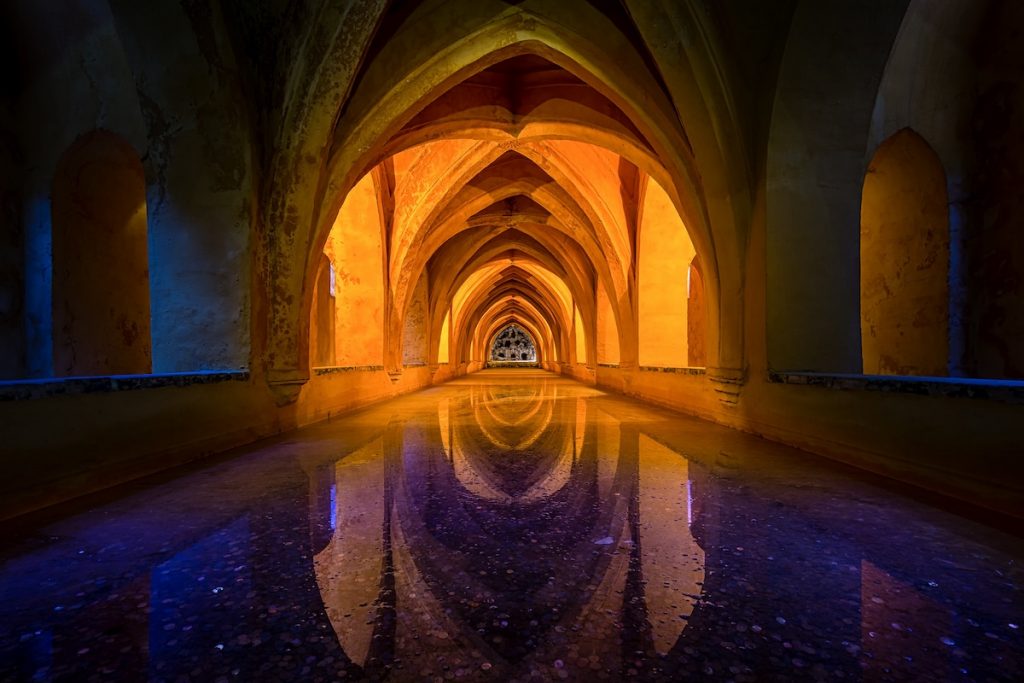
Alcazar Seville: Make the most out of your visit
As one of Seville’s most visited attractions, expect lines to get in should you find yourself without a ticket. With this in mind, purchasing your tickets in advance is recommended.
Securing a ticket is one thing, and enjoying the grounds when they aren’t completly swamped with visitors is another.
Our suggestion for both?
Joining an exclusive early access tour so you can enjoy the beauty of the Alcazar where you get to soak up the beauty and history with just a handful of other VIPs and your expert guide. Trust us, it’s pure magic!
_______________________
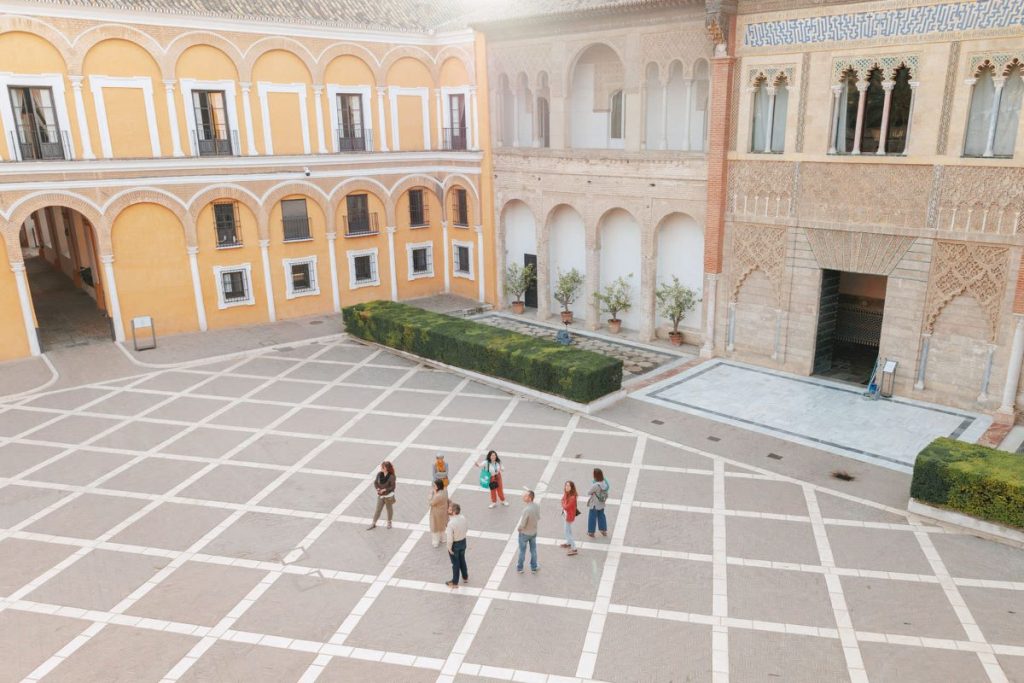
Where to eat near the Alcazar Seville
You’ll have plenty of options for breakfast or lunch near the Alcazar. Santa Cruz is centrally located, but it can be a bit challenging to find a local spot amidst the touristy places. To help, we recommend the following family run locations, all of whom are proud to be partnered with us at our sister group, Devour Tours.

Breakfast in Seville
- Bar Santa Cruz “ Las Columnas”: Despite being situated on one of Seville’s main thoroughfares by the Cathedral, Bar Santa Cruz retains a special place and charm amongst not only locals, but tourists alike. Top your toast with their pringá, a local specialty of spiced meat, or go for the classic tostada Andaluz (toast topped with oil, tomatoes and jamón ibérico).
Lunch in Seville
- Casa Roman, Las Teresas, Casa Plácido or Vineria San Telmo. If it is traditional tapas, both cold and hot, look no further than Roman, Teresas or Plácido, whose familiar feel and homemade food have kept the locals well fed and watered for decades. If looking for something a little more modern with a great selection of local wines, Vineria will be sure to please. Be sure to try Teresas’ delightful acorn-fed iberian ham, the local fried fish in Casa Roman, and the spinach and chickpeas, made with love daily in Plácido. Should you end up in Vineria, their take on pluma ibérica (a cut of pork just above the shoulder)—trust us!
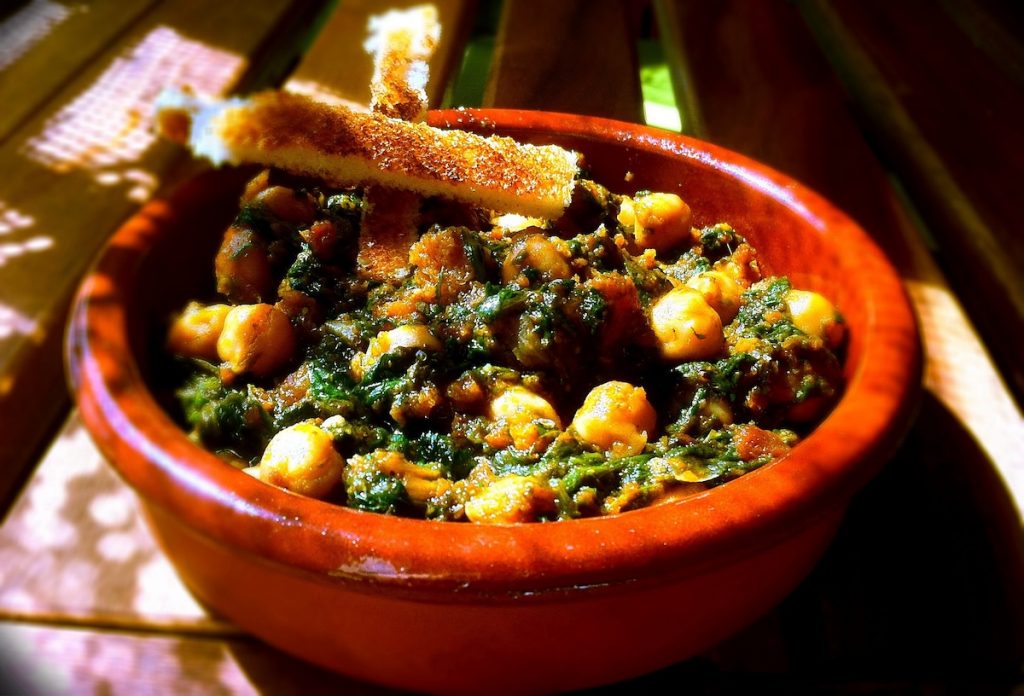
Alcazar Seville: Escaping the crowds
While standard tours are available for this attraction, imagine bypassing the crowds and enjoying exclusive access to the palace before it opens to the general public. This is possible on our Alone in the Alcazar: Exclusive Early Access Tour.
Here, our knowledgeable Seville guides will lead you on a private journey through its halls and gardens, providing an intimate experience reminiscent of the palace’s royal history.
With no crowds spoiling that perfect photo, that reflective view, and an expert English-speaking guide at your service for 90 minutes, experience the Alcazar in a unique and special way with Walks.
Trust us when we say there is no other way to truly experience this true jewel of Sevilliano history.
